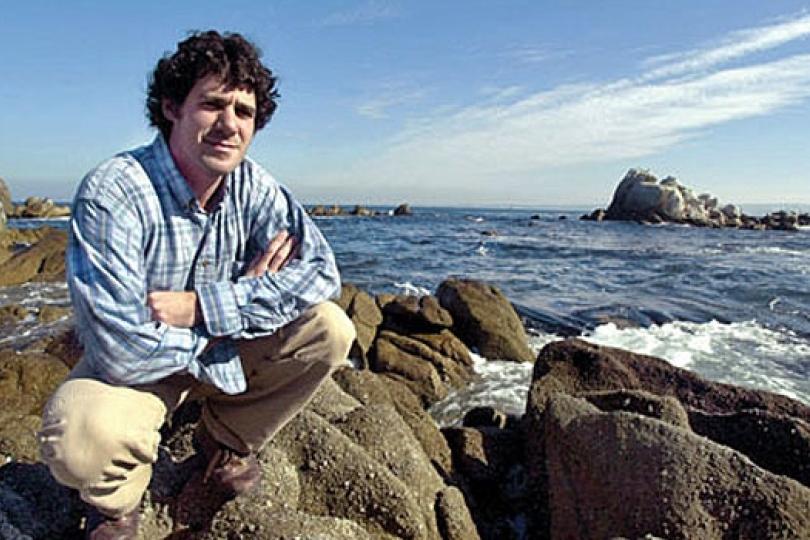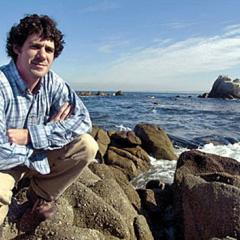Honoring Rafe Sagarin
Rafe Sagarin, 2000 Fellow (1971-2015)
Rafe Sagarin’s tragic death has had many of us in the Switzer Fellowship Network grieving over the loss of a truly magical human being. I say magical because what I and others knew of him was that he epitomized a blend of smarts, savvy, adaptability, creativity and fortitude that one rarely finds in a single human being. A recent Washington post article notes his uniquely creative style, particularly his ability to see connections in our natural and social worlds, and his bravery in bringing these connections to a policy arena. His experience as a AAAS Fellow in the office of then Senator Hilda Solis of California inspired him to bring his innate interdisciplinary perspective to link the issues of nature’s defenses and national security, culminating in his acclaimed book “Learning from the Octopus: How Secrets from Nature Can Help Us Fight Terrorist Attacks, Natural Disasters and Disease”.
It is easy to point to Rafe’s accomplishments and accolades, his positions held in Washington DC, or at Duke University’s Nicholas Institute for the Environment, at UCLA, and most recently at University of Arizona. There, he was re-creating a marine component of Biosphere 2 focusing on the Sea of Cortez at the interface of the Sonoran Desert and immortalized in John Steinbeck’s classic “Log of the Sea of Cortez”.
When I think of Rafe, I think of how he embodied the kind of leadership we emulate here at the Switzer Foundation. He had incredible research and analytical capacity, which at its core was an innate curiosity that made it possible to find connections across disciplines as well as ecosystems. His interdisciplinary thinking supported his creativity in intellectual and personal spheres. I will never forget first meeting Rafe in 2000 at the California Fellows’ retreat when, as a new Switzer Fellow, he shared some of the cartoons he created that were inspired by the weekend. I think of his seamless interplay between research, analysis, direct experience, humor and art.
Rafe also embodied a style of leadership that always put “place” first. Wherever he found himself – in North Carolina, California, or Tucson, he connected with causes, people and places he cared about. While the marine realm was his love, he remained open and thoughtful about where and how to make a difference with his skills and dedication – whether restoring and “daylighting” a creek on the UCLA campus, or helping raise funds for local watershed restoration in North Carolina, or more recently, re-invigorating a marine research facility within University of Arizona’s Biosphere 2. This willingness to find work, love and play in whatever place in nature he found himself, even the nature of urban life, shows how one could lead with one’s passions and live life to the fullest.
Finally, I would be remiss if I were not to mention his belief in equity across all faces of society and his dedication to a life in balance with his wife and family. He was in Tucson these recent years to support his family while his wife was engaged in her passion, to pursue a PhD in anthropology. His dedication to life, work, nature, community, family and our tenuous social ecosystem in the face of so much natural and political uncertainty has given me pause to remember what leadership looks like. There was so much more he could have done. We must carry on without him and for him.

